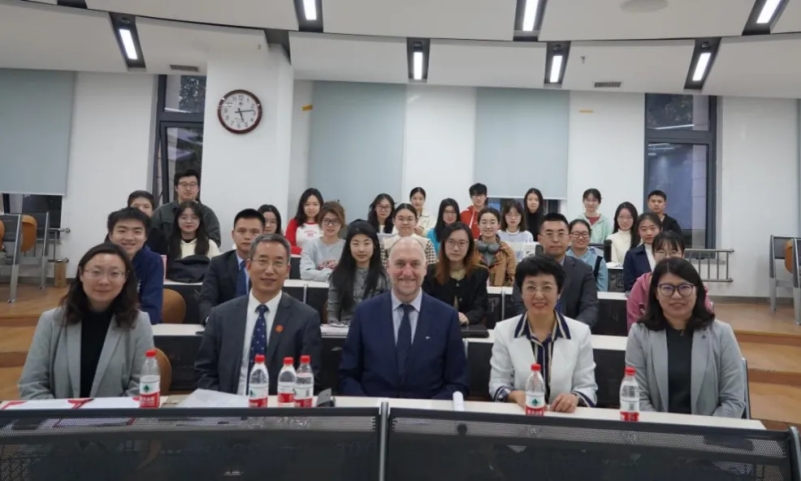On October 18, 2024, the first lecture of the ‘International Competence Development’ Module and the Expert Forum Series of the School of Juris Master, titled The Historical Origins of International Financial Institutions and Their Impact on Organizational Purpose and Governance Structures, was successfully held in Room 0202, main teaching building, Xueyuan Road Campus. The event was jointly organized by the Office of International Cooperation and Exchange and the School of Juris Master. The keynote speaker was Professor Gerard Johannes Sanders, Honorary General Counsel of the Asian Infrastructure Investment Bank (AIIB). Professor Juqian Li, Director of the Office of International Cooperation and Exchange, attended the forum, and Professor Shenjian Xu, Dean of the School of Juris Master, delivered a welcome speech. Dr. Ningyao Ye provided commentary. The lecture was hosted by Min Liang, Vice Dean of the School of Juris Master. Students enrolled in the International Competence Development Module attended the lecture.
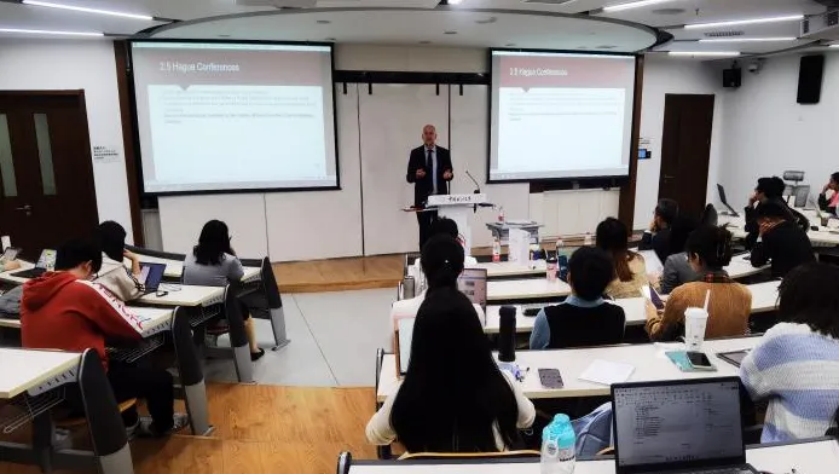
At the beginning of the lecture, Vice Dean Min Liang extended a warm welcome to Professor Sanders, introduced the attending guests, and provided an overview of Professor Sanders' academic background and research achievements.
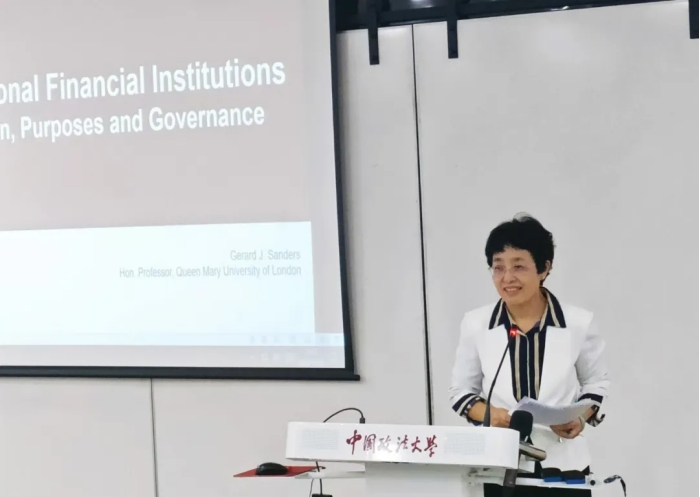
Dean Shenjian Xu delivered a welcoming address on behalf of the School, expressing gratitude to Professor Sanders for his visit. He emphasized the significance of cultivating legal talents with international expertise amidst China’s modernization efforts and highlighted the necessity of training professionals for international organizations. He pointed out that the lecture would provide valuable insights into the operational mechanisms of international organizations and the qualifications required for roles in international financial institutions.
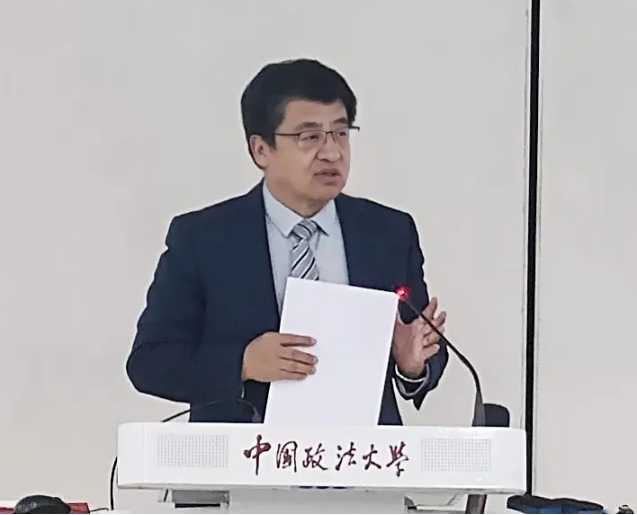
In his lecture, Professor Sanders began by explaining the purpose of his chosen topic: to deepen participants' understanding of international organizations. He noted that cooperation among nations has existed throughout history, with forms of intergovernmental cooperation emerging as early as the 19th century, such as the Concert of Europe, the International Postal Union, and the Telegraph Union. These early collaborations laid the foundation for later international financial institutions.
Professor Sanders traced the origins of ideas underpinning international financial institutions, citing early 20th-century concepts such as Dr. Sun Yat-sen's proposal to establish an international development organization and plans for an Inter-American Bank. He highlighted the League of Nations as the first universal international organization, whose governance model significantly influenced subsequent financial institutions.
He then discussed the establishment of the Bretton Woods system and the United Nations following World War II, which marked the formation of the modern international organization system and the creation of key financial institutions like the International Monetary Fund and the World Bank.
Professor Sanders explored the themes of innovation and international cooperation, emphasizing the developmental goals reflected in the history and functions of international organizations. He highlighted the United Nations' pivotal role in promoting global cooperation, peace, and development in the post-war era. He also delved into the governance structures of international financial institutions, including their boards of governors, executive boards, and leadership roles such as presidents or managing directors. He analyzed governance attributes such as professionalism, independence, and transparency, as well as challenges related to diversity and the influence of powerful member states.
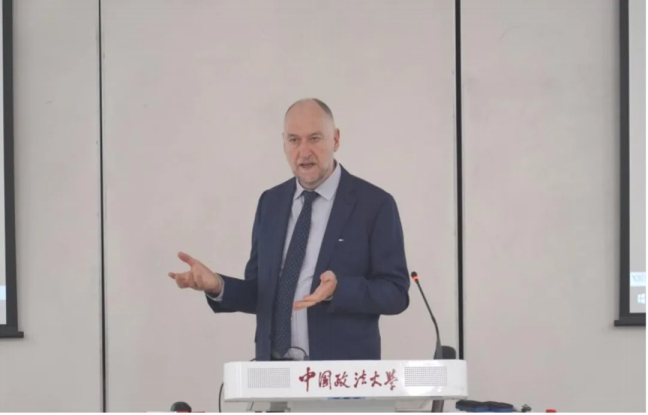
In conclusion, Professor Sanders underscored that studying the historical evolution of international financial institutions helps us better understand the purposes and governance provisions outlined in their charters. While the objectives of these institutions have increasingly aligned over time, their governance models might diverge. The shared challenges of historical legacies, ownership, and policies reflect the realities of international cooperation. Ultimately, international financial institutions aim to achieve common human goals, such as maintaining peace and advancing humanity.
Dr. Ningyao Ye provided commentary on the lecture, noting the significant role of international financial institutions in financial globalization and their reflection of the new international order. He observed that the objectives of these institutions align with the concept of "common prosperity" proposed by President Xi Jinping. Dr. Ningyao Ye expressed his gratitude to Professor Sanders for his insights, stating that the lecture had deepened his understanding of the importance of international financial institutions and would positively influence his future research.
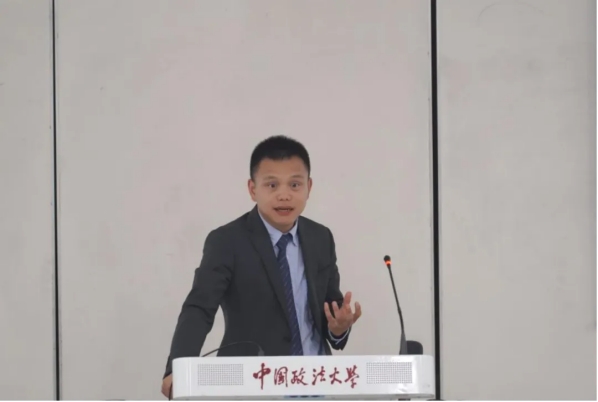
During the interactive session, students actively engaged with Professor Sanders, posing questions related to the WTO and international financial institutions. Professor Sanders engaged in in-depth discussions with the students.
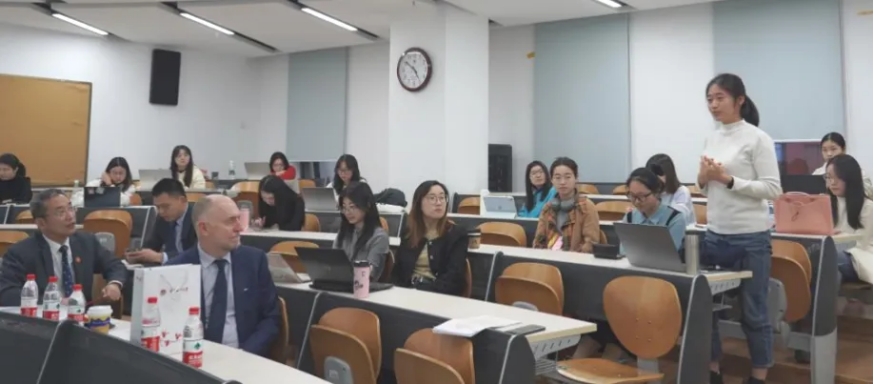
Professor Juqian Li invited Professor Sanders to offer advice to students aspiring to work in international organizations, to which Professor Sanders provided detailed responses.
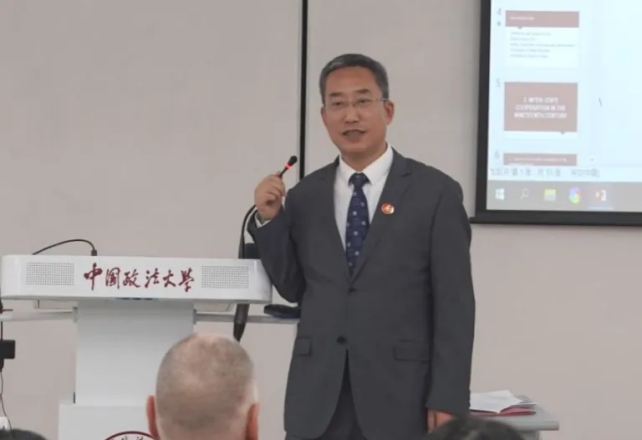
In closing, Vice Dean Min Liang expressed her gratitude to Professor Sanders for his thought-provoking lecture, which she noted had enhanced participants’ understanding of the historical origins of international financial institutions and their profound impact on purpose and governance. The event ended with a group photo and warm applause, marking the successful end of the lecture.
